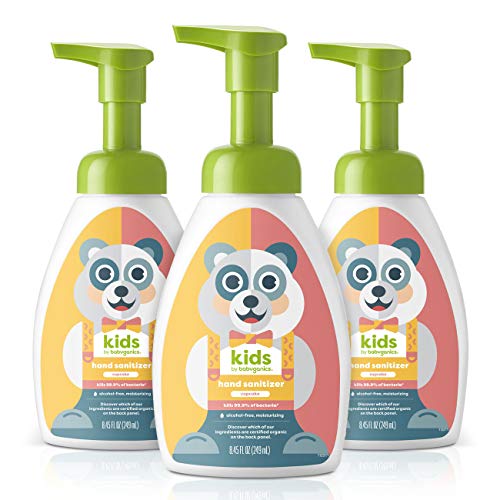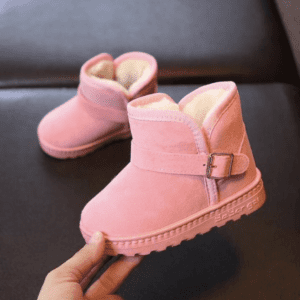The Coronavirus and COVID-19 disease are one of the most terrifying combinations that have ever been discovered. It was first detected in December of 2019 and since then, it has been spreading at a quick pace. In this article, we will be discussing how you can protect your kids from COVID-19 in 2021. Parents, you need to take this virus seriously and do what you can to keep your children safe. Learn all about COVID-19 and how it may impact our little ones. Keep reading for more information on how to protect your children from this frightening virus that is currently spreading!
Are children at lower risk of COVID-19 than adults?
There is no evidence thus far that children are at a lower risk of becoming severely ill than adults. This virus has already shown us how dynamic and unpredictable it can be. It does not follow any set pattern or rules, so no one is safe.
Children under 18 represent about 8.5 % of reported cases and deaths are relatively few compared to other age groups. Usually children show milder diseases as well. However, there have been a number of children who have become severely ill with COVID-19.
How can you protect your kids from COVID-19?
There are a few things that parents should do to protect their children from COVID-19. First of all, make sure that your child is frequently washing their hands with soap – especially after using the bathroom and before they eat anything. If you are trying to cook dinner at home, try to have your kids help out in the kitchen so that they understand the importance of proper hygiene when handling food. If you are in a restaurant, make sure to ask your child not to handle their nose or mouth, in order to avoid the risk of catching this virus.
In addition, make sure that your child is getting enough sleep and rest at night because it has been shown that people who are running low on energy are more likely to get sick immediately after they have come in contact with this virus. You should also have regular conversations with your child about how to recognize the symptoms of COVID-19 and what they should do if they think that they are coming down with it.
There are also other things that you can do in order to protect your kids from COVID-19. You should consider making regular visits to your family doctor in order to make sure that you are up-to-date on all of the recommended vaccines, especially if you plan on traveling outside of the US any time soon. It's also important to ask about the status of every vaccine that is available for this new virus.
Tell your kids to keep at least 1 metre distance from others – at all times. The virus spreads through the air, which is why it's important to make sure that your kids isn't too close to others at any time.
If keeping distance from others is not possible, they should always have a mask at hand. Unfortunately it seems that we need to deal with this virus for months or even years to come, so make it a routine to have your kids always a mask with them.
Sneezing or coughing should always happen into a bent elbow or tissue, not the hand. This is really important and we need to train our little ones to behave properly when they enter public spaces.
To stay as safe as we possibly can, we should avoid crowded places whenever we can. That really helps preventing the virus from spreading and can save lives.
We have written quite a lot of articles in this blog about parenting in the past, but now it's the time, where parenting can actually save or cost lives. So the best advice I can give you is to be a proper role model for your kids.
What are the symptoms of newborns and kids under 15 infected with COVID-19?
The most common symptoms of COVID-19 in the baby and child under 15 are similar to those seen in adults: fever, respiratory problems, coughing, pneumonia et tiredness. In addition, children have been observed having diarrhea from other viruses during their infection by COVID-19. This is a common symptom that will be observed in young children who have become sick.
Blue lips is another symptom for COVID-19 in children. We have seen the first case of COVID-19 in an unvaccinated child. A mother brought her son to the pediatrician because his lips were blue and he was acting like he was exhausted: “he could hardly manage to lift his head and hold it up for longer than a few seconds”.
If your little one complains about chest pain, this is another symptom of COVID-19.
Be sure to tell the pediatrician immediately if your child has a fever and shows any of these symptoms. The sooner they seek medical attention, the faster we can start helping them get better! Of course it's important that you don't panic and drive straight to the hospital because of every little thing – running around and panicking isn't going to help.
However, please keep in mind that the best thing you can do is get your child vaccinated against this virus as soon as possible! There are several vaccines available for COVID-19 and we would recommend that you get every vaccine that has been approved for children.
If you have a baby or newborn and have problems breastfeeding, this can also be a sign of COVID-19. There is still a lot of research done to find out what the symptoms and signs of infections in babies and newborns will be like, so we cannot currently give you reliable information on this topic.
Just have a close look and take any potential symptoms serious. When your child is showing any of those symptoms, contact a test center, your healthcare provider or pediatrist. They will help you find out what's the best you can do.
How long does it take for symptoms of the coronavirus disease to appear?
The incubation period of coronavirus is usually 2-7 days. Symptoms show up on average between 4 and 6 days after exposure to the virus. But in some cases we have seen symptoms showing up after 14 days. When a child gets exposed to COVID-19, it's important that they immediately seek medical attention! The earlier you come in contact with a doctor or pediatrician, the better. The doctors can help your kid get started on treatment as soon as possible.
Which organs are most affected by COVID-19?
The lungs are where COVID-19 goes to work the most. Often times, only one lung is affected by this virus. The virus can attack your child's lung tissue and can sometimes result in serious damage to their lungs.
Many people having recovered from COVID-19 show increased levels of liver enzymes and abnormal liver function. We don't know if this happens through COVID.19 or the medications and drugs prescribed during the illness. But we need to stay alert.
Medical professionals have observed long-term impact on people's heart health after an infection. That means more formation of blood clots and an increased risk of a heart stroke.
Besides the already mentioned complications, kidney function is maybe the most growing concern for medical professionals observing COVID patients. Even younger patients are affected and are at risk of developing kidney problems in the future.
COVID-19 and school
Since schools began in August, we have been receiving questions from parents about making a decision whether or not to send their child to school. We want you to know that our recommendation is always the same: it's up to you! If you feel your child is perfectly healthy and capable of attending class, by all means please allow them too! Our research team strongly believes that many children will be able to attend school and learn alongside other children. It's important that your child is socially active so they don't lose their chances of having a normal life.
CDC recommends wearing indoor masking for all teachers, staff, students and visitors to schools. Regardless of their vaccination status. As a parent or caregiver you can get more information how your school is using the CDC guidance ici.
The media reports more and more children getting sick from COVID-19 rapidly these days. And children going to the hospital for severe infections at increased rates are reported from nearly every school. Especially in areas with low vaccination rates.
How can you find out how schools protect your child?
Ask your school district and school for written procedures or a webinar where parents can ask questions about the schools' plans and procedures. They should be able to explain COVID-19 prevention methods, as well as actions to take if a student, educator, or staff member has been exposed to someone with COVID-19, has symptoms of COVID or is tested positive for the coronavirus.
Can the school ask you for your child's vaccination status?
That depends on state laws that establish vaccination requirements for school kids. Schools that plan or already do ask children for their status should follow certain protocols and make sure that data collection aligns with relevant regulations.
Should my child wear a mask to school?
Absolutely, yes. Masks work. They limit the spread of germs from person to person by blocking virus particles from getting into the air. Masking indoors is one of the best ways to protect our kids from COVID-19 and is highly recommended by the CDC, WHO and other institutions.
Do kids need to wear masks on the school bus?
Yes. In January, of 2021 CDC issued an order requiring masks on all public transportation. This includes school buses.
Benefits of school tests
Testing is an important prevention that can identify positive people more quickly. This can eventually prevent an outbreak within the school. By identifying infections earlier, schools can limit the transmission of the virus and can maintain in-person learning, sports and extracurricular activities.
School-based testing is a great method to make it quick and easy for your child to get tested as often as possible. This is an additional security layer for you and your family.
What to do if your child is tested positive for COVID-19
If the test took place outside of school, contact your school to allow for contact tracing. Make sure your child is isolated as soon as possible and that you follow the steps outlined below to prevent COVID-19 infection in your family. To avoid disturbing others, don't go to school, socialize, or participate in any extracurricular activities.
Can my child go to school if anyone else in the family tests positive?
If you or anyone in your family is discovered to be infected, your child should follow the instructions provided by their school for quarantine. Even if your kid tests positive and does not have any symptoms, they should not go to school unless instructed to do so by their school. They should follow your school's advice on isolation precautions.
Quarantine and isolation
If you might have been exposed to COVID-19 you are at risk of spreading it to others. That's when you or your children quarantine.
In case you are already infected and have been tested positive, even if you don't show any symptoms, you isolate.
What to do if my child is identified as a “close contact”?
Your kid was exposed to someone who had COVID-19. And, if your child is labeled a close contact, he or she must follow testing and quarantine instructions from your school. Quarantine is a critical public health instrument that helps prevent the spread of various dangerous diseases.
Can my child go to school if he or she shows COVID-19 signs or symptoms?
No. Please keep your kids at home if the show any symptoms. Children who are already infected should also be tested for COVID-19. It's critical that your kid avoid in-person school if they have indications or symptoms of illness. During quarantine and isolation, talk to your school about remote learning possibilities. If your child has symptoms, he or she should not congregate in public locations, play sports, take part in extracurricular activities or socialise with others.
Vaccines for kids
The very best thing you can do to protect your child is vaccinate your kid. We know that's not always an easy choice to make, we also know that we live in a time where misinformation and conspiracy theories dominate the social media and public discussion and makes it sometimes even harder.
The CDC recommends that you vaccinate your children 12 and older as soon as possible. COVID-19 vaccines are available for kids 12 and older only, but studies are already in the making to see if younger children can get vaccinated safely and effectively soon.
So far, all studies done in kids show that all available vaccines are absolutely safe. Vaccines undergo intensive testing before people can get it and over a million kids are fully vaccinated in the US already.
Pregnant women or women currently breastfeeding can get vaccines too. Experts are sure that vaccines are safe for both the mother and the baby. When in doubt, please talk to your doctor and get his or her opinion.
The best time to get your over-12-year-old kids vaccinated is when he or she gets their routine immunizations. Simply because you can combine both parts. This is especially important if your kids already missed getting some vaccines during the pandemic.
The long run
The long run will require all kids get vaccinated. As of 2021, it's the only way to protect our children from COVID-19. Vaccinating your kid is one of the most important thing you can do as a parent.
To vaccinate or not to vaccinate? This is a very personal choice, but I encourage you to consider vaccinating your child.
Experts anticipate that the coronavirus will become a seasonal pathogen that most of us will not be concerned with for the most part. However, how long it takes — and how much damage the virus causes in the meantime – is still uncertain.
Even after all of that, the transition to a mild endemic virus is unlikely to be a straight line. Some infectious disease researchers predict a more healthy summer, when there will be fewer people infected and more people vaccinated. Other factors, such as how long immunity lasts after vaccination, what proportion of individuals receive them, and whether viral variants weaken vaccines, will determine the fate of the virus and social life.
These are not the sorts of forecasts that anybody eager to see the end of the epidemic will enjoy hearing. Some experts, on the other hand, believe that we may be witnessing a turning point in which vaccine usage reaches more people and protects them from the severe consequences of Covid-19.
SARS-CoV-2 may join the ranks of OC43, 229E, NL63, and HKU1—the four endemic, seasonal coronaviruses that cause a portion of all common colds each year—in 20 years or so. Our immune systems — which are primed by vaccinations, boosters, and prior encounters with the virus – will fight COVID-19, blocking infections or leading to mild symptoms or nothing at all.
















































2 réponses
I wouldn’t be surprised if you disapprove of my previous comment. The truth in your eyes will stab.
Children, if they get sick with this “fashionable” disease, get sick easily. This is almost like the seasonal flu. This vaccine should not be given to anyone, especially children. This vaccine has not yet gone through all animal studies. These experimental animals are used by humans. There are a lot of side effects and deaths. Muzzles are humiliation for people. People take for idiots. It’s time to end this circus. During the entire time of this pandemic, all diseases disappeared, there was only one diagnosis left.